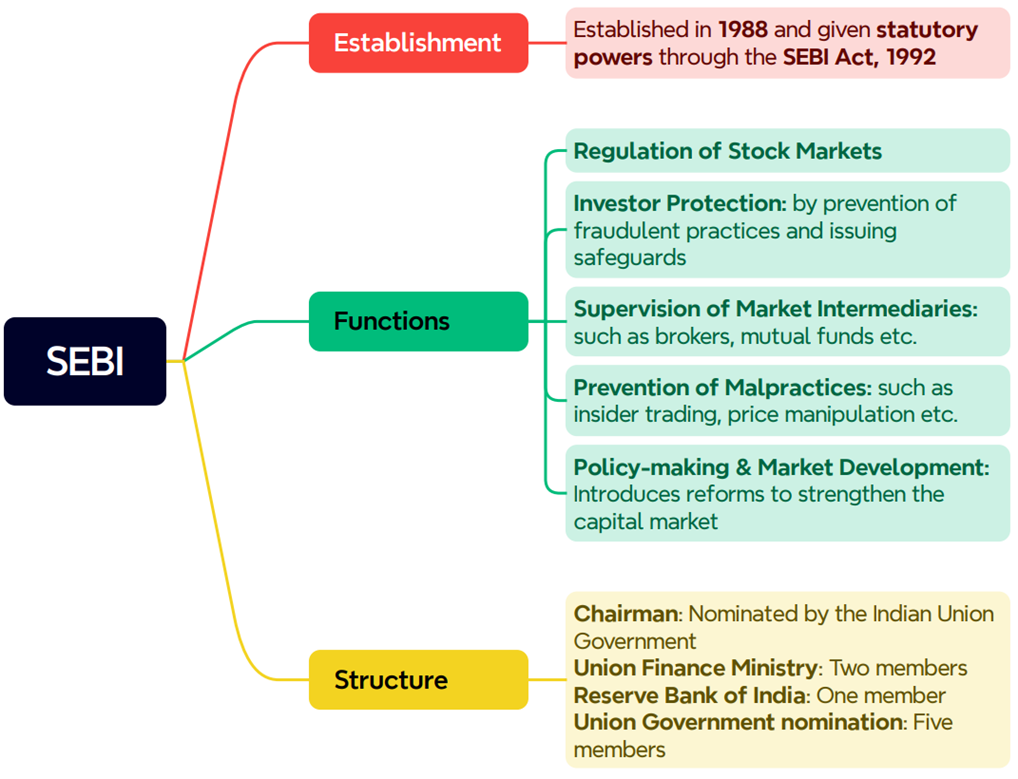- Courses
- GS Full Course 1 Year
- GS Full Course 2 Year
- GS Full Course 3 Year
- GS Full Course Till Selection
- Answer Alpha: Mains 2025 Mentorship
- MEP (Mains Enrichment Programme) Data, Facts
- Essay Target – 150+ Marks
- Online Program
- GS Recorded Course
- Polity
- Geography
- Economy
- Ancient, Medieval and Art & Culture AMAC
- Modern India, Post Independence & World History
- Environment
- Governance
- Science & Technology
- International Relations and Internal Security
- Disaster Management
- Ethics
- NCERT Current Affairs
- Indian Society and Social Issue
- NCERT- Science and Technology
- NCERT - Geography
- NCERT - Ancient History
- NCERT- World History
- NCERT Modern History
- CSAT
- 5 LAYERED ARJUNA Mentorship
- Public Administration Optional
- ABOUT US
- OUR TOPPERS
- TEST SERIES
- FREE STUDY MATERIAL
- VIDEOS
- CONTACT US
SEBI proposed Retail Algo Trading Framework
SEBI proposed Retail Algo Trading Framework

Recent Context
- In February 2025, The Securities and Exchange Board of India (SEBI) allowed participation of retail investors in Algorithmic trading.
- Earlier, only institutional investors were allowed to use it via Direct Market Access (DMA)
- Direct market access (DMA) is a way of trading financial instruments directly on an exchange, without using a third-party broker.
- In this regard, SEBI also put out a framework to regulate the participation of retail investors in the algorithmic trading space.
What is Algo trading?
- Algorithmic trading (or algo trading) is trading using automated execution logic.
- Here, computers are programmed using pre-set rules to automatically buy and sell stocks.
- Thus, instead of a human clicking “buy” or “sell”, a computer program executes trades at high speeds.
- Two main strategies in Algo trading:
- Low-frequency strategies
- To make a few trades over hours or days
- For example, Trend-following algos may buy/sell when the market reaches a certain level.
- High-frequency strategies
- To execute several thousands of trades per millisecond
- For example, Market-making algos constantly place buy and sell orders, profiting from tiny price differences.
- Low-frequency strategies
Advantages of Algo Trading
|
ADVANTAGE |
DESCRIPTION |
|
Speed |
Executes trades at high speeds, much faster than human traders, taking advantage of market opportunities in milliseconds. |
|
Accuracy |
Minimizes the likelihood of human errors in placing trades. |
|
Market Monitoring |
Continuously monitors multiple markets and securities, identifying and seizing opportunities instantly. |
|
Emotion-Free Trading |
Eliminates emotional and psychological factors from trading decisions, relying solely on logic and rules. |
|
Back testing |
Allow traders to test strategies using historical data to forecast how they would perform in real market conditions. |
What are the key highlights of the Regulatory Framework?
- Role of brokers:
- Retail investors will get access to the approved algos only from the registered brokers.
- Sole responsibility of brokers in handling investor grievances.
- Trading Limits for Retail Traders:
- Retail traders must follow exchange-set limits (yet to be decided).
- Registration of algos developed by retail investors if they cross the specified order per second threshold.
- Registration of Algo Providers:
- Algo providers are not regulated by SEBI but must register with exchanges and partner with a broker to sell algos.
- Categorization of Algorithms:
- White box: Logic is disclosed and replicable i.e. Execution Algos.
- They must be registered with the exchanges once and can be offered to any trader once registered.
- Black box: Algos where the logic is not known to the user and is not replicable
- To offer them the algo provider will have to get a Research Analyst (RA) license from SEBI and meet certain compliances.
- White box: Logic is disclosed and replicable i.e. Execution Algos.
- Unique identifier:
- Each algo order would be tagged with a unique identifier to establish an audit trail.
- Responsibility of stock exchanges:
- Supervision of algo trading
- Establishing comprehensive Standard Operating Procedure (SOP) for testing of algos.
- Surveillance on all algo orders and monitoring their behaviour at all times.
Key market-related terms
|
TERM |
DEFINITION |
|
Retail investor |
Nonprofessional investor who buys and sells securities for their own personal use |
|
Institutional investor |
Organization that pools money to invest in securities, real estate, and other assets |
|
Stockbroker |
Financial professional who buys and sells stocks as per clients' direction. For example, Zerodha, Groww etc. |
|
Algo providers |
Businesses that sell algorithmic trading strategies and programs to traders |
|
Stock exchange |
Exchange where stockbrokers and traders can buy and sell securities. For example, BSE |
What is SEBI?

|
Also Read |
|
| FREE NIOS Books | |



